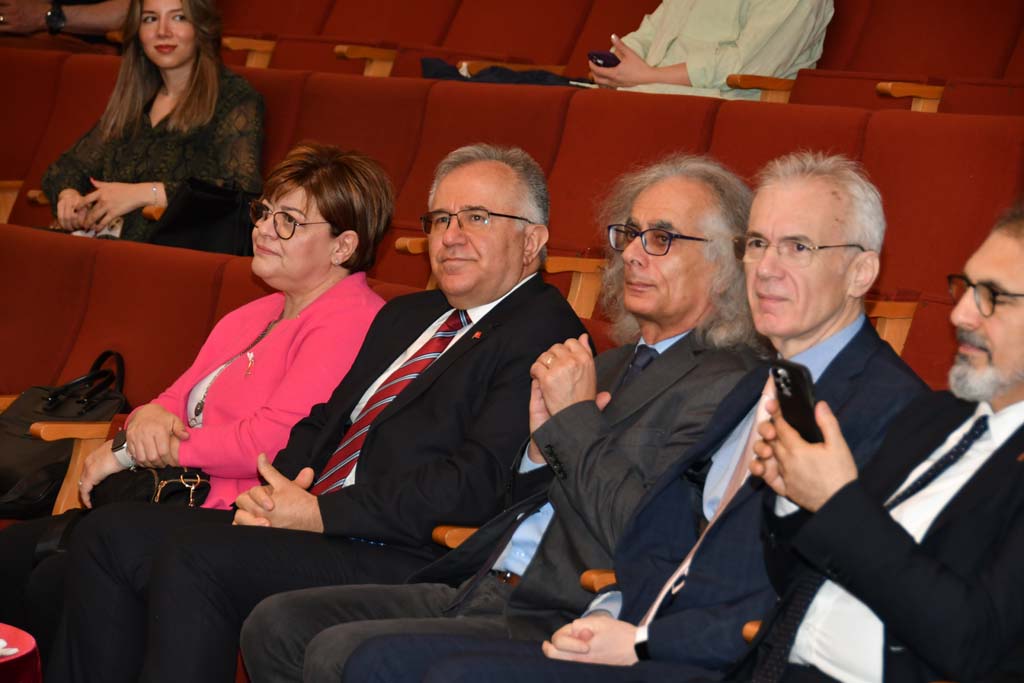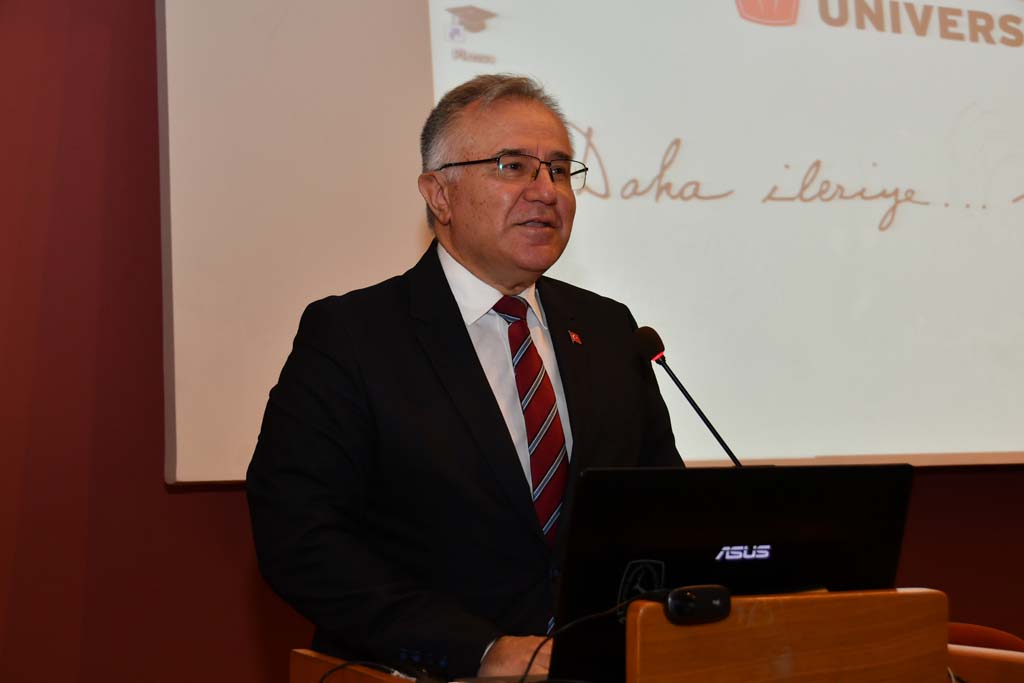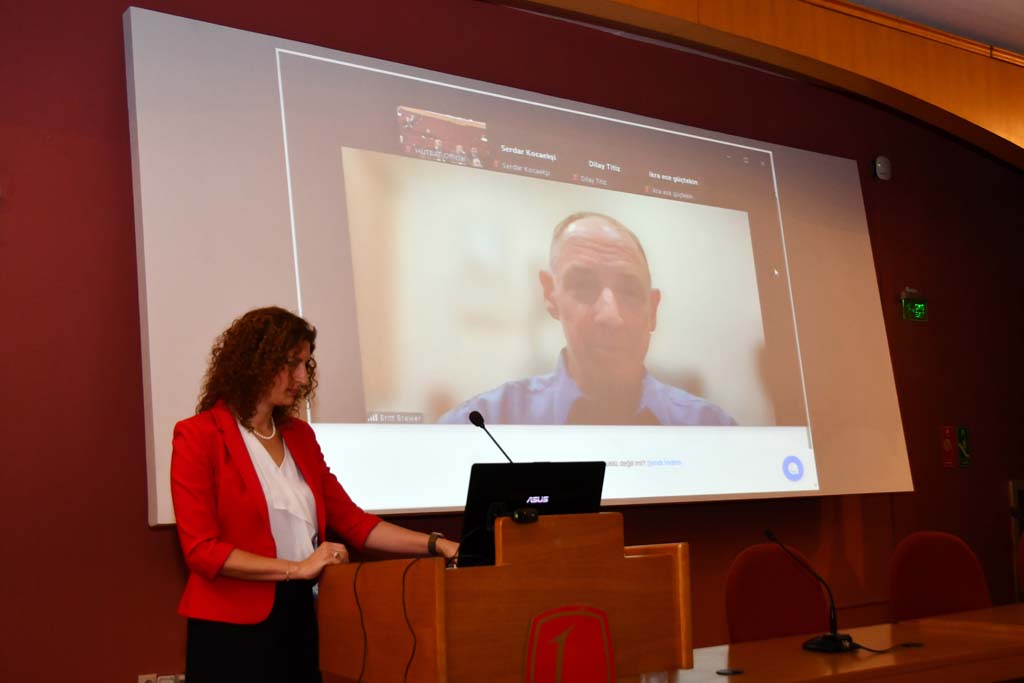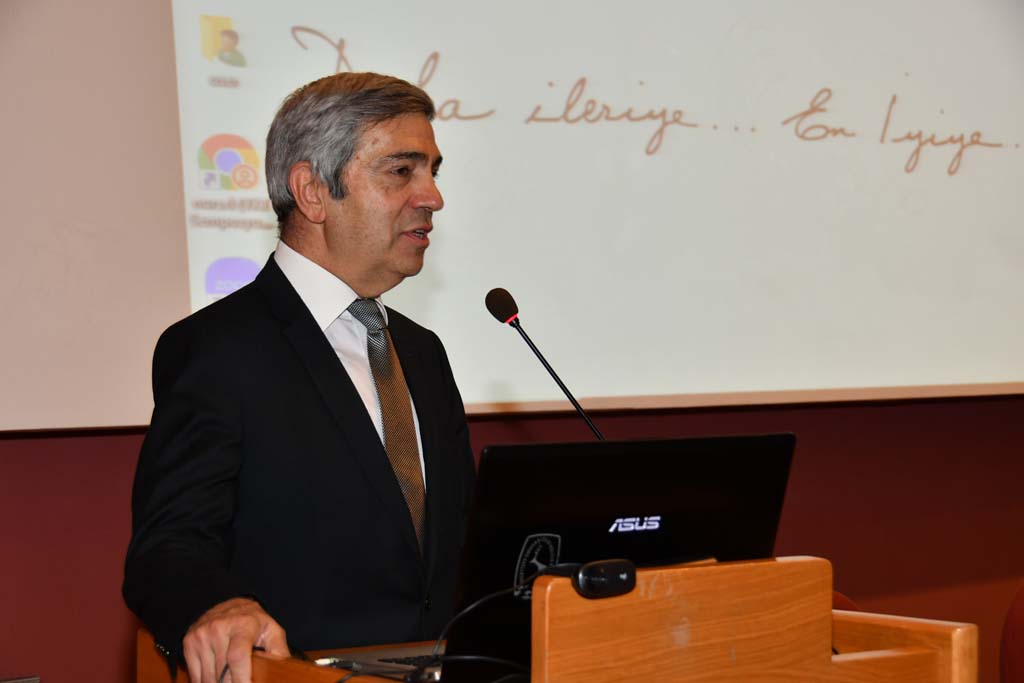The closing workshop of the TÜBİTAK 1001 Project titled "The Effect of Cognitive Behavioral Therapy and Virtual Reality Use in Supporting Physical Rehabilitation After Anterior Cruciate Ligament (ACL) Surgery," developed by faculty members of the Faculty of Sport Sciences at our university, was held on May 9 at 09:30.
The opening speech of the closing workshop was delivered by our Rector, Prof. Dr. Mehmet Cahit Güran. In his speech, Prof. Dr. Güran stated:
“Our Faculty of Sport Sciences is highly productive with its scientific and TÜBİTAK projects. It is a faculty that has initiated and successfully completed many projects. With this project, it has added another success to its pioneering role and is creating a tradition. I see sports not only as an academic subject for our university but also as a vital part of university life. We will continue to strive for our students and staff to be engaged in sports. As understood from the title of today’s project, it involves sports, health, and information technologies. It is a multidisciplinary study combining several fields. Therefore, we also see that academics from various disciplines contributed to this work. Original contributions to science often emerge from multidisciplinary studies. I therefore congratulate the project team for this approach.”
Dr. Ziya Koruç, faculty member of the Department of Exercise and Sport Sciences, who is the Principal Investigator of the project, provided general information about the study, explaining its aims and significance.
Prof. Dr. Britton W. Brewer, a contributor to the project, shared insights into the post-operative process and psychological journey of patients following ACL surgery.
Dr. Hande Türkeri, a research assistant from the Department of Recreation at the Faculty of Sport Sciences, presented the results of the study.
The project team emphasized that this is the first study of its kind conducted in Türkiye. They noted that the return-to-play process is generally very challenging for athletes who have undergone ACL surgery. However, in this study, they found that the use of virtual reality goggles in combination with cognitive therapy significantly facilitated this process. They highlighted the importance of collaboration between sports physicians, physiotherapists, and sports psychologists.
At the end of the workshop, an interactive panel was held with contributions from Prof. Dr. Volga Bayrakcı Tunay from the Faculty of Physical Therapy and Rehabilitation, Vamos Academy Volleyball Coach Gökhan Sezal, Vamos Academy Athletic Performance Coach Ertun Bozkurt, and basketball player Alper Eren.



